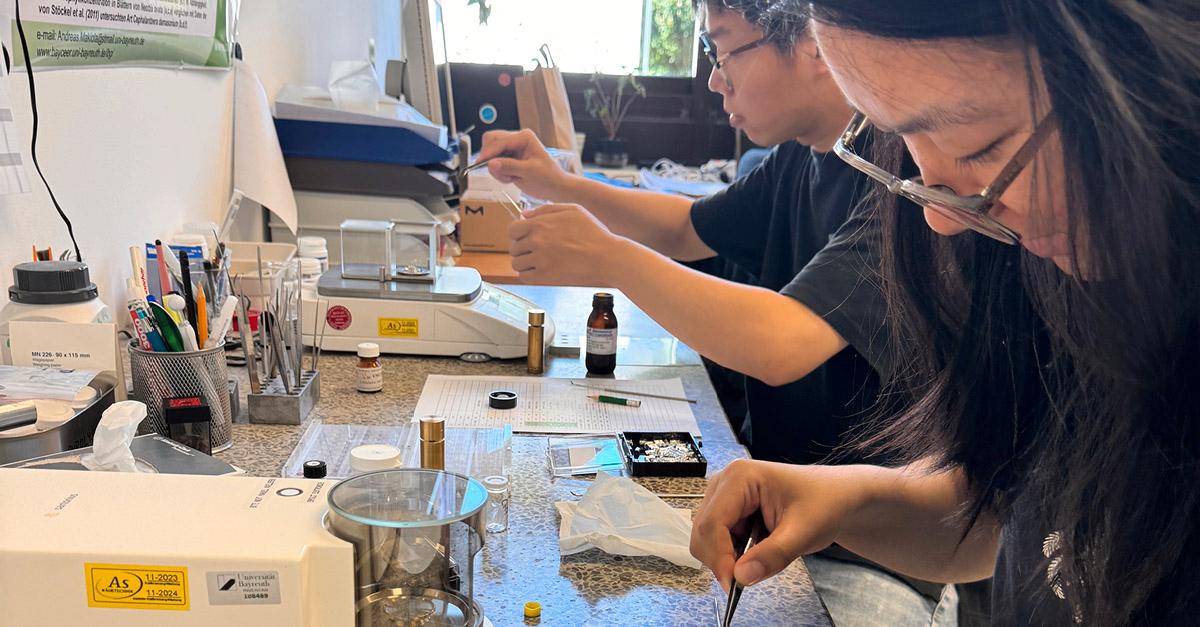News
Bayreuth Stable Isotope Summer School (BaySISS 2025)
In September, the Bayreuth Centre for Stable Isotopes in Ecology and Biogeochemistry (BayCenSI) at the University of Bayreuth will once again host a Summer School. This one-week course offers PhD candidates and master's students the opportunity to expand their theoretical and practical knowledge of stable isotopes.

© Wanqiong Mao
The Bayreuth Stable Isotope Summer School (BaySISS) brings together early-career researchers from around the world to gain in-depth knowledge of stable isotopes and their applications in environmental and ecosystem research. Stable isotopes are chemical elements that differ in the number of neutrons in their nucleus but are not radioactive. Organised by the DFG Core Facility BayCenSI, based at the Bayreuth Centre for Ecology and Environmental Research (BayCEER), the Summer School combines theory and practice: Through lectures by renowned experts in isotope research and hands-on laboratory exercises, including field methods, participants are equipped to apply the latest findings and methods of isotope research to their own work in fields such as ecology and biology. In addition to academic enrichment, BaySISS also provides opportunities for networking and interdisciplinary exchange.
"The networking was a real highlight – exchanging ideas with international colleagues and experts was incredibly valuable," said one of last year's participants.
The Summer School has an international focus: In 2024, 23 young researchers from eleven different countries took part, including the USA, Ecuador, Brazil, and China. Participants explored both theoretical and practical aspects of topics such as plant-soil interactions, microbial activity and ecology, spatial resolution of isotopes in soils, as well as the fundamentals of hydrology and aquatic biogeochemistry. This year, participants will once again be able to set their own focus in specialised laboratory practicals: The workshops range from analysing ecosystem metabolism in lakes to studying microbial activity using density gradient centrifugation of enriched DNA and examining spatially resolved isotope ratios of microbial biomass in soils via laser ablation and isotope ratio mass spectrometry.
"The teaching dynamics were fantastic! Theoretical knowledge was well explained and perfectly combined with practical sessions, lab tours, and research demonstrations," added another participant.
This year’s BaySISS will take place from 21–26 September 2025 and is open to PhD candidates and master's students who use stable isotopes in their research. The programme offers participants the chance to deepen their expertise and expand their professional network. Participation in BaySISS is free of charge. Applications for this year’s event can be submitted via the website www.bayceer.uni-bayreuth.de/baysiss until 16 March.
Application and further information: http://www.bayceer.uni-bayreuth.de/baysiss
Contact: baysiss(at)uni-bayreuth.de
Text by Theresa Hübner (first published at ubt-aktuell)

